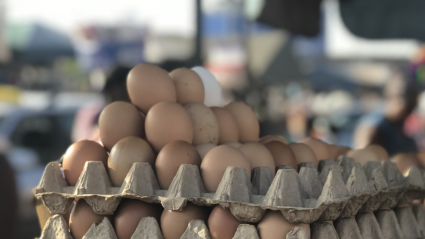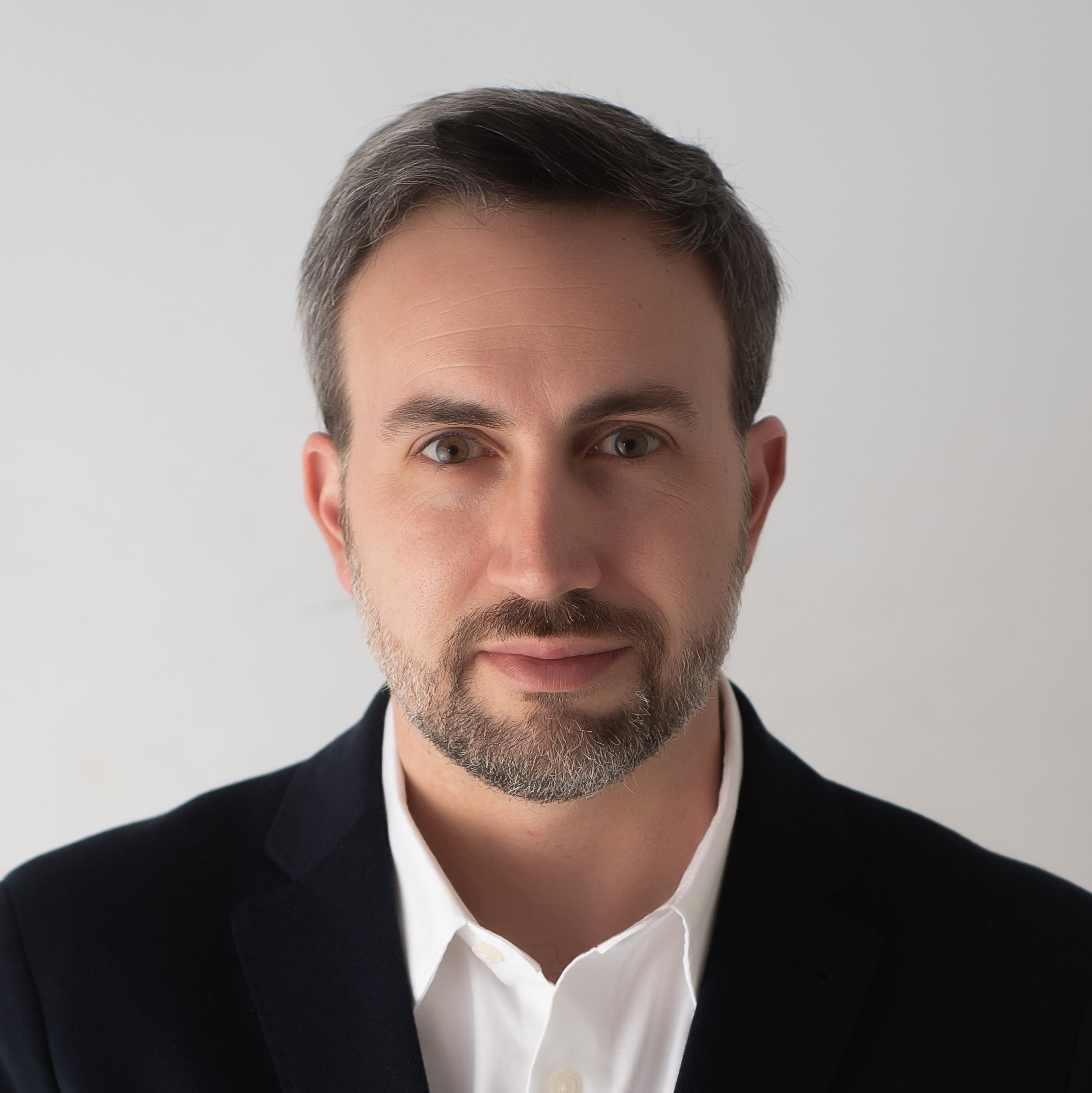
Key Takeaways
The following are a few of the main takeaways from COVID-19 Africa Watch’s conversation with Aya Chebbi, African Union Youth Special Envoy:
Africa’s youth are facing four main crises as a result of COVID-19: an economic crisis (especially in terms of employment, and particularly for the youth who are in the informal sector); a health crisis (which also includes mental health challenges as a result of isolation); an increase in gender-based violence (including destruction of sexual reproductive health services, no access to contraceptives, and the rise of child marriage and FGM); and a humanitarian and human rights crisis (including increased police violence, and particular difficulties migrant or refugee youth, and youth in conflict settings).
To better address these crises and based on extensive consultations with Africa’s youth held in March and April 2020, the African Union has established the African Youth Front on Coronavirus, putting in place a high-level policy space for young people to co-lead the response to the pandemic. Looking ahead, the main demands from youth (for their governments as well as for the international community) are around creating a conducive environment for employment in Africa, and better including youth in the continent’s digital transformation (recognizing that so far, 70% of Africa is still offline).
In terms of youth leadership, young people are being set up for failure if they have to wait until they are 40-50 years old in order to lead traditional institutions. They need to be in these institutions now, and perhaps if they had been better included in leadership roles a decade ago, Africa would have digitalized and innovated faster and would have been better equipped to tackle COVID-19 today.
The interview was conducted by Ndey Anta Taal, an IFC-Milken Institute Capital Market Scholar from International Trade Center. A transcript is available below.
See more from our Interview Series
Transcript
Interviewer
Good afternoon. My name is Anta Taal, and I work for the International Trade Center based in Geneva. I am a scholar of the IFC Milken Institute Capital Markets Program. I am delighted to welcome Ms. Aya Chebbi, who is an award-winning Pan-African, the youngest, diplomat, and first-ever Special Envoy on Youth at the African Union Commission. Thank you for being with us today, Ms. Chebbi.
Aya Chebbi
Thank you, Anta, for having me.
Interviewer
The COVID-19 pandemic has resulted in severe economic and social impacts around the world. Young people especially have been vulnerable to the disruptions resulting from COVID-19. In your view, how are young people affected by this global pandemic and what role can they play in the prevention of and recovery from the pandemic?
Aya Chebbi
Really to list on the challenges and the impact of COVID-19 on young people is tremendous. It basically exacerbated existing inequality. So, whatever we had as a challenge in Africa and whatever was not working for young people is now burdened by COVID-19.
Maybe I’ll summarize these challenges in four main what young people call crises because for them, it’s really an emergency. And the first one primarily is an economic crisis, especially youth and employment. We know before the pandemic that Africa generated only 3 million formal jobs for a 12 million youth entering the workforce every year. So this has even doubled, especially for youth who are in the informal sector and many of the packages or the subsidies provided by government didn’t include or consider the informal sector. And besides education being disrupted, there is a mismatch between education and jobs and the digital divide. So young people would say in our consultations that the economic crisis is now very real with the pandemic and needs to be addressed.
The second one obviously is a health crisis, but they would emphasize a lot on mental health. This crisis has isolated many young people, and they have been really challenged, and we try to help them with helplines. But this has been a very lonely period of time and very difficult for everyone.
The third would be gender inequality. There was a lot of consultation. We did three consultations specifically for young women, and gender-based violence cases have been on the rise, there has also been the destruction of sexual reproductive health services, no access to contraceptives, and the rise of child marriage and FGM. We would just put it under the umbrella of gender-based violence, but it’s been a lot of challenges for young women and girls.
The fourth is that the youth are not at the table. We know from experience that we need trust between youth and institutions, and we didn’t have that trust even before the pandemic. So it’s very normal when you want young people to comply with the measures that they’re not following these measures, because they don’t believe in political discourse and in African institutions. There is a broken trust already existing. And COVID-19 shows that even more: even in the response, a lot of governments looked at a lot of youth innovation, but didn’t include them at the table of discussion.
And the last one briefly is the humanitarian and human rights crisis. So there is a lot of raising awareness around police violence, a lot of human rights challenges, and in terms of the refugees, the Internally Displaced Persons, youth and migrant youth in conflict settings, and all that. So the most vulnerable have been even more affected.
Interviewer
Thank you so much. As a special Envoy to the African Union, are there any specific initiatives and programs being introduced at the continental level to combat COVID-19?
Aya Chebbi
Yes. We did youth consultations from March until April. It was focus-group consultation, and then we opened up for eight intergeneration webinars. We brought decision-makers, the African Union, our commissioner, especially organs of the African Union, and the Regional Economic Community leaders, to have a direct engagement with young people. And what came out of it was a bottom-up approach, which is so important: the African Youth Front on Coronavirus, which makes the African Union actually the first and maybe the only inter-governmental institution to put in place a high-level policy space for young people to co-lead the response. So the Youth Front has about 18 representatives of different networks that were identified during the consultations. They’ve been meeting since May, for three months now on, on a weekly basis.
And they submit briefs to Africa CDC outlining, what is the youth perspective? What do young people think? How do we roll this out in the Member States? The Africa CDC did the webinars on risk management. The Youth Front did a survey to see where young people are getting information, where they are getting fake news from, and then they submit these different policy briefs to support Africa CDC, with a youth perspective. I’m very proud of this group; it’s an African innovation.
The second thing that we try to do is with young women. As I said, one of the focus areas was gender-based violence. So we wanted to put young women’s issues upfront. We launched about a month ago a call for Sauti. Sauti is “my voice” in Arabic and “voice” in Kiswahili. We selected 25 women, who told not only their stories but their initiative, their perspective, their opinions about their lives and how they’re affected by COVID-19. We launched this blog, which is also the first-ever blog of the African Union, just two weeks ago.
We need everyone to support and amplify these young women’s struggles and voices, but also recognize their innovation because they’ve been innovating on the front lines, like many young people, but we need now to push for a recognition to, you know, move from this prototype to actually scale up youth innovations, to create jobs for them as well.
Interviewer
Very interesting. Can you tell us more about your role in these initiatives and how young people are participating in the discussions towards finding the solutions, especially to minimize the impact of this pandemic?
Aya Chebbi
The role of my office is really to bridge the gap – basically to bring youth closer to the AU and the AU closer to young people, but also to advocate for the Commission to engage young people in a different way.
Interviewer
How is your office using digital technologies to engage and respond to the COVID-19 pandemic?
Aya Chebbi
Especially now in the virtual world, we all moved into these kinds of webinars. With old, bureaucratic traditional institutions in our countries and at the regional level and continental level, we have the opportunity as young people to show the way, to lead the way, and to show how they can engage differently. And I think that’s the role we played.
“Even though we have to recognize 70% of Africa is offline. So we’re only targeting those 30%, but at least let’s engage those 30% meaningfully.”
Even though we have to recognize 70% of Africa is offline. So we’re only targeting those 30%, but at least let’s engage those 30% meaningfully. We hope to keep on bringing youth to the discussion and not make them feel like, “Okay, there is so much happening in Addis Ababa and at the continental level, but I have no clue about what are these initiatives are about.” They have to have a say in it. So we hope with the Youth Front they have at the political level, at the policy level, at the advocacy level, a say in it.
And we hope with other initiatives like Sauti, like hustlers, like dialogues and consultations, to have that engagement at that grassroots community level.
Interviewer
Thank you very much. And within the context of the response strategies being developed globally, is there any way in which you think African governments and the international community should be adapting the responses to COVID-19, especially to mitigate the impacts on the youth?
Aya Chebbi
Well, first of all, I feel that for the pandemic response, there needs to be, in general, more global solidarity. And now, because Africa is reaching its peak, we need to have more solidarity with Africa.
“We need jobs. We’re the most unemployed population in the world, and yet we’re the most youthful population in the world.”
But in terms of youth, how do we move forward with youth demands? First of all, we need to listen because young people have been saying. Even before the pandemic, we need a conducive environment for employment. We need jobs. We’re the most unemployed population in the world, and yet we’re the most youthful population in the world. We’re 65% under 30. So job security is a demand from youth. Countries need to look at it; the global community needs to look at it. If the global community wants to help Africa support jobs for young people in Africa, support production in Africa, we don’t need to import masks and import test kits. That can create jobs for young people in Africa to make those products and to industrialize.
And the second biggest demand of youth is the digital transformation. In 2020 it’s unfair to have Africa out of the digital revolution. It’s really unfair. We don’t have access to the internet, let alone Internally Displaced Persons and refugees in informal settlements. And education is completely disrupted. Now that everyone is on e-learning, how are African youth supposed to be getting all these opportunities if they don’t even have access to the internet? So I think we need to accelerate digital transformation. And at the African Union, we have a strategy adopted in February 2020, that countries just need to roll out and implement so we can move with speed.
Interviewer
Do you think youth are adequately included in the decision-making process?
Aya Chebbi
You set up young people to fail if you wait for them to be 40 and 50 to go into traditional institutions. They need to be in these institutions now.
“Maybe if we included young people a decade ago in our institutions, we would be ready for COVID-19, because all our ministries would have been digitalized already.”
And maybe if we included young people a decade ago in our institutions, we would be ready for COVID-19, because all our ministries would have been digitalized already. In all of the responses that we’re doing, we would have had the innovations in place. So let us move into an intergenerational leadership. How can we all work together to move Africa forward, to beat this virus and get it out of our continent?
Interviewer
Indeed, it is very important that we include young people in decision-making processes. Finally, are there any specific examples of youths leading the way that you would like to share with us – especially in terms of entrepreneurship development, innovation, to respond to the pandemic?
Aya Chebbi
Just to say a few, we have seen in Cameroon, Vision in Action, distributing free sanitary pads, which might sound very easy and something very basic, but they’re doing it organically, they’re doing renewables. And they’re innovating in getting access to young women. In Tanzania, a company started a grassroots fundraising campaign to support vulnerable communities, and they build permanent hand-washing stations in markets. They tried to fundraise for all sorts of preventive measures with the government.
And maybe the last one we need to highlight is the refugee setting: the Sahrawi Republic. I had a conversation with the youth-led initiative in a refugee camp, also raising awareness with the Sahrawi youth in Algeria during the pandemic, and also trying to be innovative with technology while working in remote and offline areas.
“We’re blessed to have this youthful population. We just have to keep being vigilant.”
It’s just kudos to all the young people who are doing a brilliant, amazing work, who’ve been on the frontlines and shown leadership globally, not only in Africa. And there are also young professionals, young health workers, who volunteer their time and work in efforts to serve their continent, to serve their countries – even though they face all of the hardships we were listing. They have emotional burdens, they have mental health challenges, and yet they wake up in the morning, and they create free things and distribute them, and they continue to be on the frontlines. We’re blessed to have this youthful population. We just have to keep being vigilant.
Interviewer
The Milken Institute and I would like to thank you so much for sharing your insights, keep up the great work, and stay safe. I’m sure we would like to hear more from you in the near future.
Aya Chebbi
Thank you, Anta.



